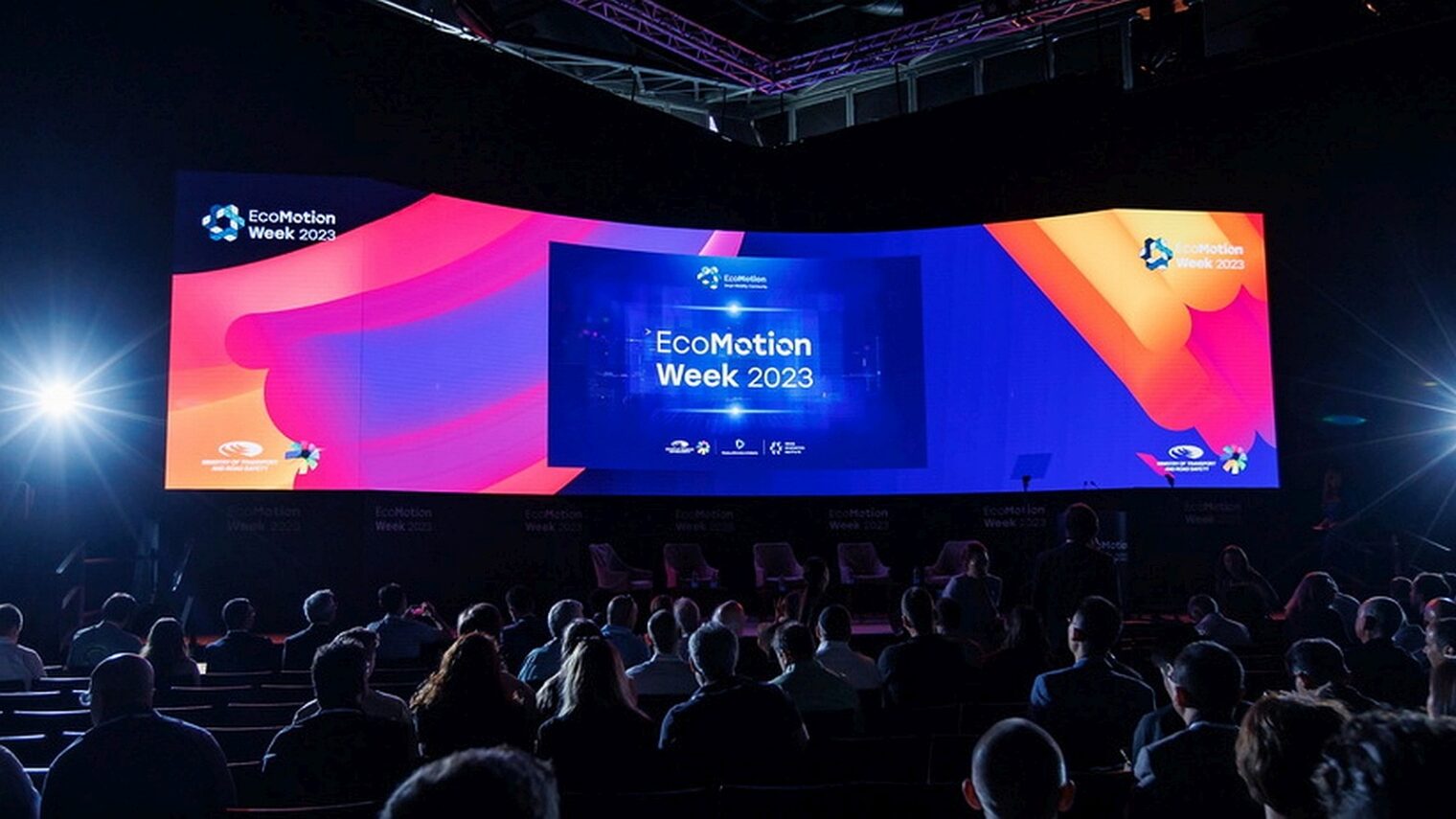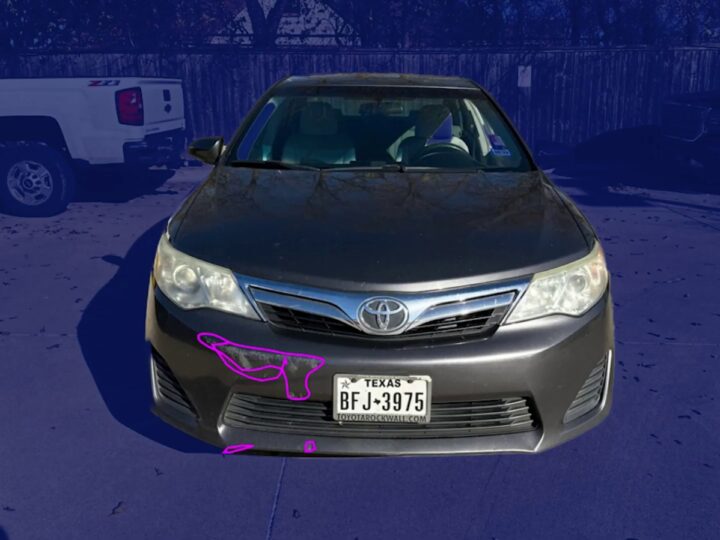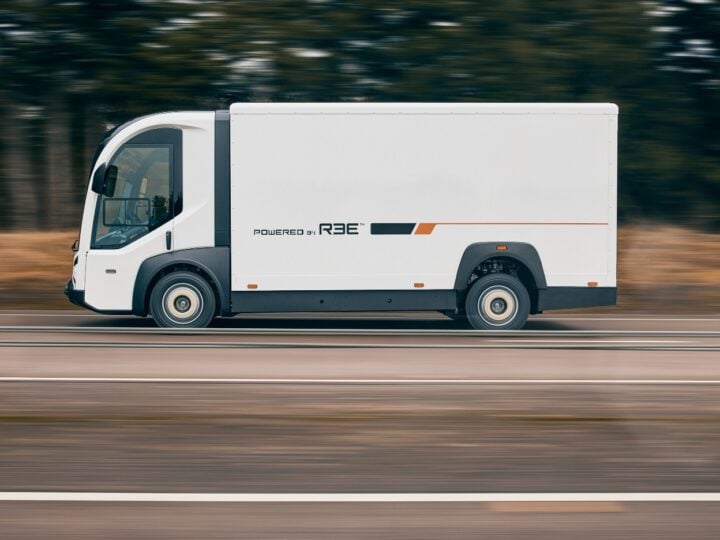I was sleepy as I squeezed into my car for the early morning commute from Jerusalem to Tel Aviv. Maybe I should have taken the train instead of a private vehicle? I wondered, in a bleary haze. Would my eyes droop as I crawled through terrible traffic, creating a dangerous driving distraction?
The answer was waiting at my destination: EcoMotion, Israel’s largest mobility conference. The annual event, now in its 11th year, attracted some 3,600 attendees, including 800 representatives of international companies from 55 countries.
Among 110 Israeli auto-tech startups on display from May 22-24 in the sprawling exhibit hall were at least two that monitor driver alertness.
I survived my commute, even without the alerts, in order to present you with 24 of the most promising Israeli companies that showed off their wares at this year’s EcoMotion.
Jungo, Cipia – keeping drivers alert
Let’s start with the startups that monitor alertness while driving. Jungo and Cipia (formerly EyeSight) use cameras that can be mounted on the dashboard or on a side panel of the car. The cameras create a 3D map of your face that can determine if your eyes are closing, for how long, and if you’re blinking more than usual (a sign of being tired). They can also see if your seatbelt is fastened.
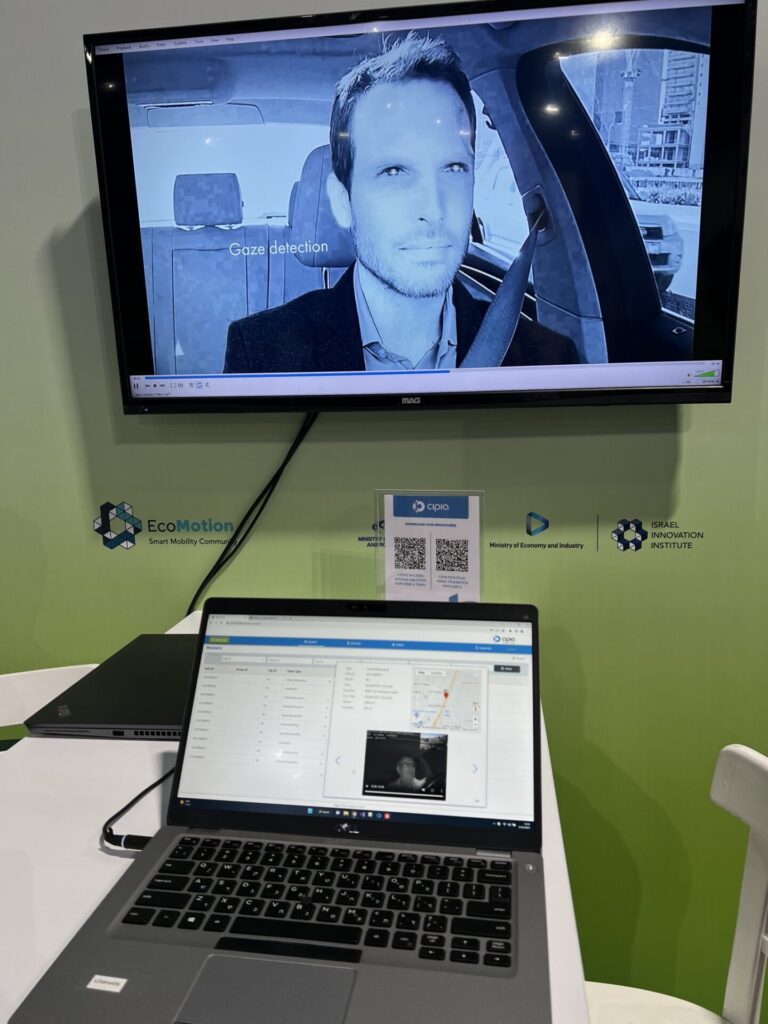
Insurance companies and fleets are the first customers for these products, since too many accidents cause difficulty getting ongoing insurance coverage.
Jungo and Cipia provide both a product for OEMs (original equipment manufacturers) to integrate up-front and an aftermarket product for fleets to install. Cipia’s new name comes from the occipital lobe of the brain, which “translates” what we see into an understanding of the environment around us.
ITC, NoTraffic, Exelerate – linking traffic signals to real-time data
The last thing drivers want to do is sit waiting at an old-fashioned traffic signal. And yet, 99% of signalized intersections still run on fixed timing plans.
Startups ITC (short for “Intelligent Traffic Control”), NoTraffic and Exelerate all use cameras affixed to traffic lights to determine how many cars are coming from either side and where pedestrians are in the mix in order to adjust the timing of the lights with the efficiency that only smart traffic software can provide.
ITC has partnered with the Tel Aviv municipality, with Netivei Israel (which controls around 700 intersections in Israel) and with an overseas client in Australia. ITC and Exelerate use existing cameras while NoTraffic requires municipalities to install its own cameras.
Skarper – e-bike kit
EcoMotion wasn’t just about cars. Skarper has developed a snap-on/snap-off conversion kit that converts any 10-speed bicycle with a disc brake into pedal-assist electric.
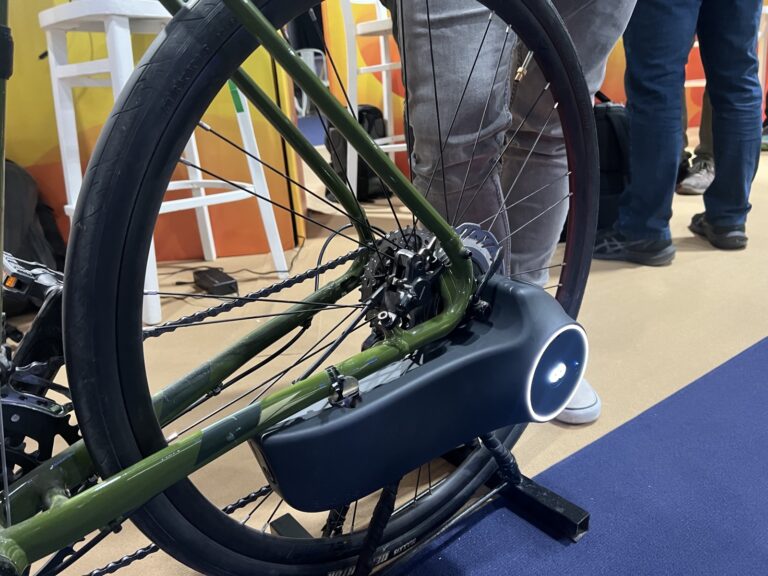
While there are plenty of e-bike conversion kits, Skarper claims that its DiskDrive is the only one with no drag — meaning if the battery runs out and you need to pedal without a boost, you won’t feel the 3-kilo kit is slowing you down. The product should be available to purchase by September for between $1,000 and $1,500.
HopOn – pay for micromobility
Israeli-based international public-transit app Moovit offers an app to pay for your bus and train tickets. For Israeli commuters, HopOn has added public scooters and e-bikes to that mix, and it can be given to employees as a perk – free rides to and from the office.
Ad-free HopOn works on all transit systems in Israel and has installations worldwide for instant payment on cruise ships, health and leisure sites, retirement villages and airlines.
Jupiter-EV – robotic charging stations
Jupiter-EV calls its technology “the future of gas stations.” That is, if gas stations resembled a multi-level parking structure.
The company’s product allows eight to 16 fast DC charging spaces to be collocated in an area less than the equivalent size of three parking spaces. Drivers plug in before the cars are raised into place by robots, and are notified via an app when charging is done and the car is back on the ground, ready to be driven away.
Driivz – charge-spot connections
Looking to build out a charging infrastructure in your community? Driivz is ready to help. The company doesn’t sell charge spots but rather the operating platform to connect and operate them.
You can find Driivz in 30 countries. In Ireland, Driivz software powers 80% of the electric grid. The company has installations in Australia, Japan, Germany, the US and Israel. In the US Driivz powers the EVGo network, the country’s largest, with over 200,000 customers. Driivz also manages billing for more than a million EV drivers.
Zooz – fast charging stations
Formerly known as Chakratec, the Lod-based startup has developed a technology for fast-charging electric vehicles in places where the power grid is not up to handling multiple cars at once. Its patented “flywheel” can speed up charging in a standard plug by up to three times.
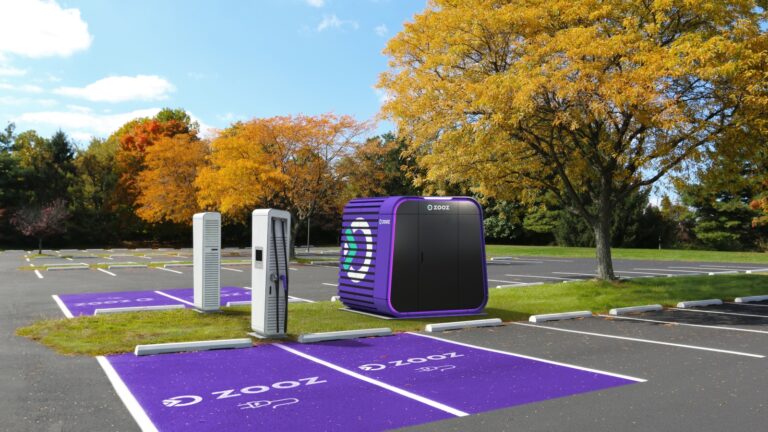
A single Zooz box can be connected to up to 10 charge spots – or a single charge spot could have 10 Zooz units super-charging it. The company is testing its tech in Germany and Zichron Ya’akov in Israel. In 2022, Zooz signed a deal to pilot its 10-minute charges at New York’s La Guardia Airport.
Grivo – charge-spot finder
When Israeli electric car network pioneer Better Place went out of business in 2013, car owners were not ready to give up on their plug-in cars. With no battery swap stations and few charging spots, drivers turned to apps like PlugShare, which located other Better Place owners willing to share a charge spot in their garage or backyard.
Grivo updates the concept. You can still use it to find charge spots at someone’s home, but now you can pay for the electrons via the Grivo app – it’s not just altruistic owners looking to help their EV buddies. The charge spot owner gets the lion’s share of the transaction.
For the 30% of EV owners who can’t install a charge spot at home (for example, if they live in an apartment complex), Grivo allows them to reserve a public charge spot. A map indicates if a charge spot is slow or fast and if it’s located near a café or mall.
C2A Security – charging station security
Automotive cybersecurity vendor C2A Security, the only DevSecOps platform (integrating security testing at every stage of the software development process) for carmakers and mobility companies, announced a partnership with Singapore’s EVVO Labs to bring C2A’s platform to EV charging and mobility companies in APAC countries including China, Vietnam and Singapore.
C2A Security CEO Roy Fridman noted: “Just last month, the FBI warned consumers to refrain from using public USB charging stations at airports and hotels due to cybersecurity concerns, and our researchers already identified similar vulnerabilities in some EV charging stations. We look forward to working with IT security leaders Evvo Labs to improve their customers’ security posture and promote stricter regulation around EV charging infrastructure.”
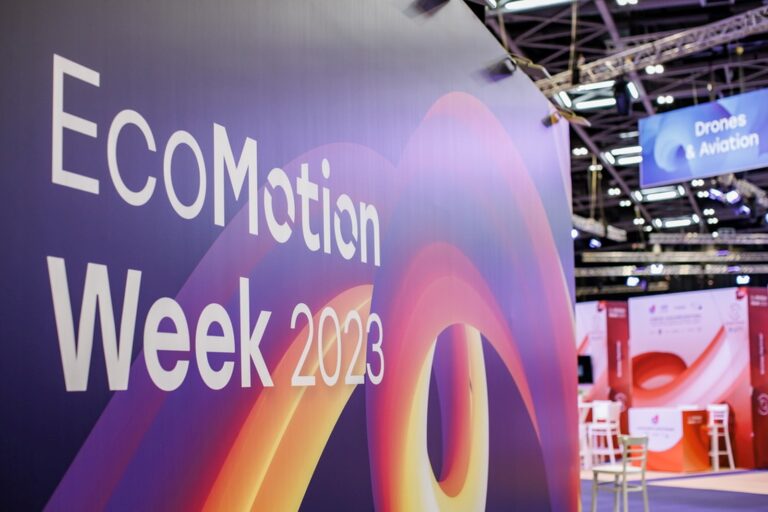
At EcoMotion, C2A hosted the white-hat hacker known as Sick Codes, who helps vehicle manufacturers identify software and hardware vulnerabilities through the development and production stages — exactly what C2A does, so it was a match made in cyberheaven.
Ravin, Spinframe, UVeye – digital car inspections
These companies are vying to replace manual vehicle inspections with artificial intelligence. Ravin just signed a deal with the Haifa Port to scan cars for damage on exit in seven seconds as they drive transit through a portable “frame.” Spinframe has a deal with the Ashdod Port to inspect vehicles via software compatible with any iOS or Android camera.
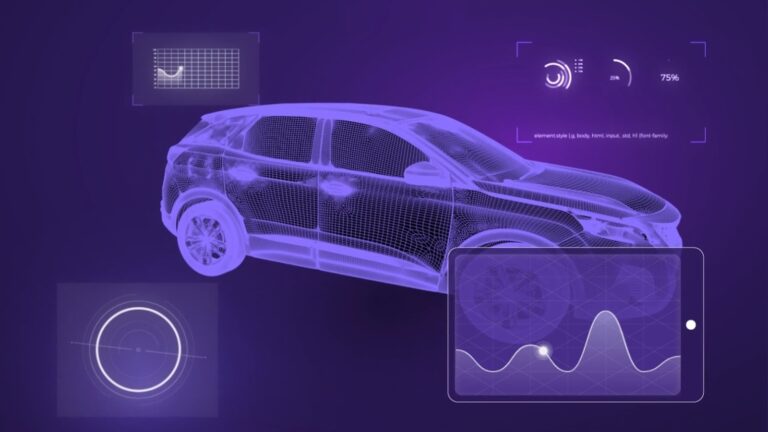
UVeye earlier this month closed a $100 million Series D round for a total of nearly $200 million since the company was founded in 2002. Its drive-through inspections are now used by 5,000 car dealerships, used-car auctions and fleets, including GM, Volvo and CarMax in the United States.
CityTransformer, Carteav – smaller vehicles
Cars are too big, especially when transporting only one person. They clog up highways and make parking difficult. That’s led to the concept of “neighborhood electric vehicles” (NEVs).
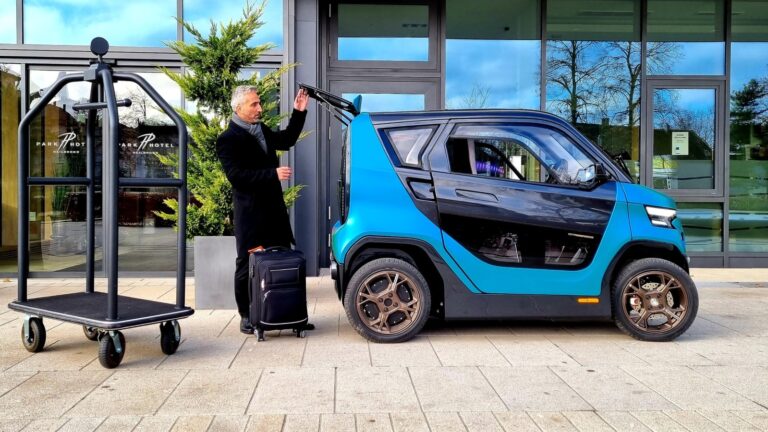
CityTransformer’s foldable car is so tiny, four of them can fit in a single standard parking space. The company prefers the term “mini car” over NEV, because it’s not just for in-city driving but can get up to 55 miles per hour with a range of 120 to 180 kilometers.
Carteav is making autonomous golf carts for use at university or hospital campuses, holiday resorts, senior villages and industrial plants. Carteav says its NEVs are safe due to their very low speeds of 15 miles per hour and mostly fixed routes.
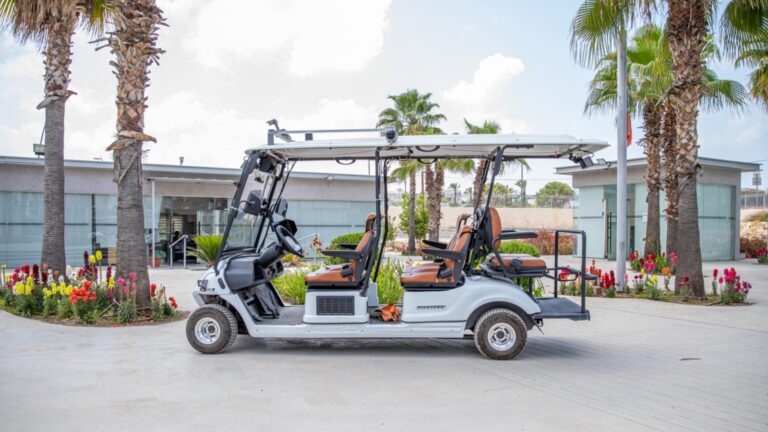
EchoID – no drunk drivers
EchoID uses a breathalyzer and a sensor to provide a new level of protection against drunk drivers and stolen vehicles. In order to start your car, you must blow into the device embedded in your car’s immobilizer FOB. The car will start only if your identity is authenticated by the sensor (which is based on an acoustic wave signature) and if your breath passes the alcohol test.
Addionics, Carrar – double your range
Range anxiety and time to charge remain the two greatest concerns among EV buyers. Two Israeli startups with very different technologies hope to improve range and decrease charging time to 15 minutes or less.
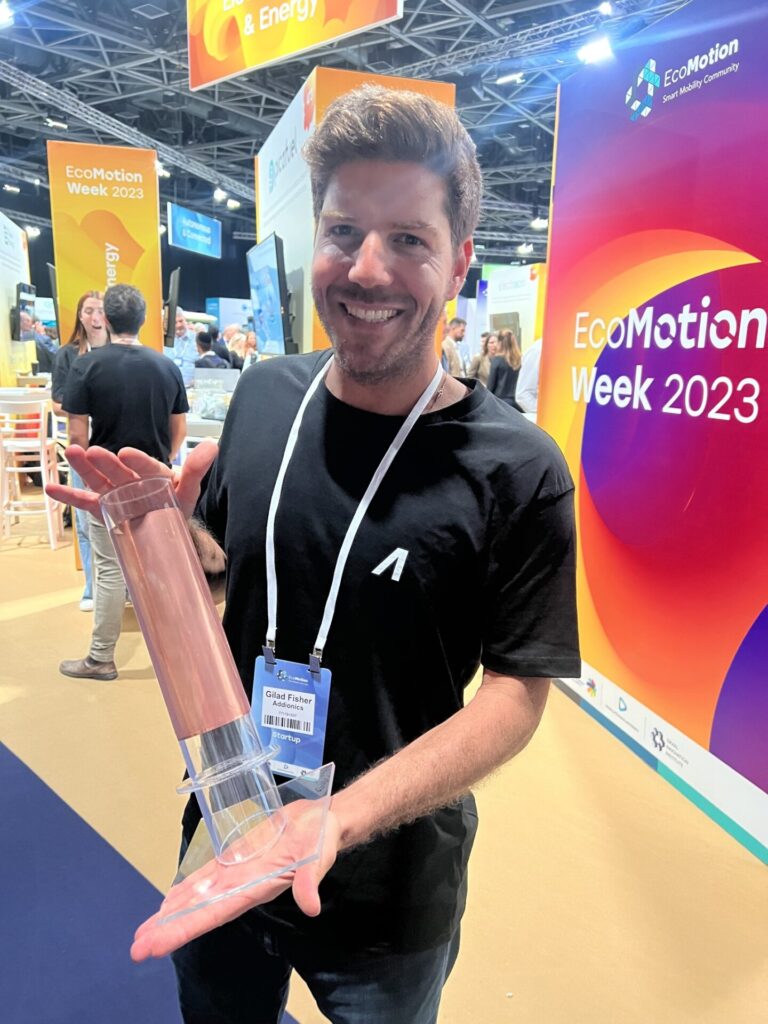
Addionics sells a porous copper roll that improves battery efficiency. Carrar works its magic by keeping batteries cool, which also improves range and longevity.
“Keeping the battery temperature at the optimal range,” explains Marco Barbolini, Global Product Manager at Röchling Automotive, which has entered into a partnership with Carrar, “also enables batteries to last twice as long, helping to cut back on battery production and its environmental impact.”
Makalu Optics – the return of Shai Agassi
Better Place CEO Shai Agassi has been missing in action since the Israeli battery swap startup declared bankruptcy 10 years ago nearly to the day of EcoMotion.
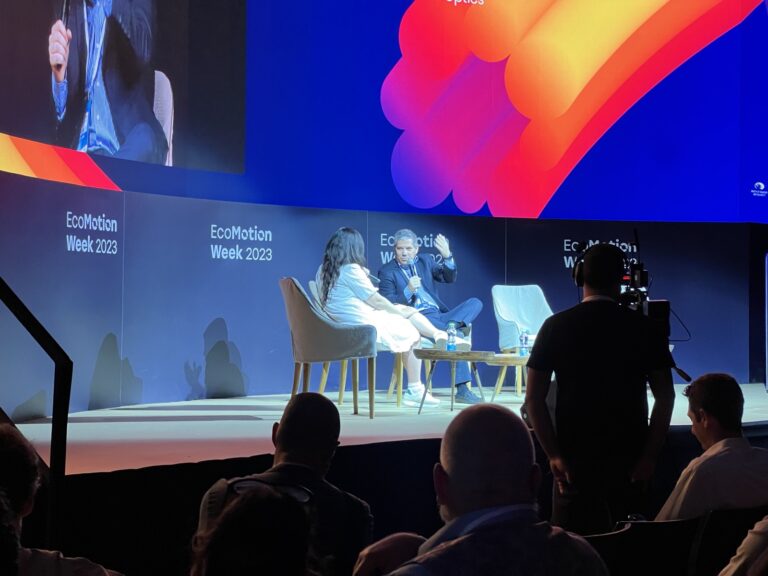
At this year’s show, Agassi took the stage to unveil his new company’s product – a pocket-sized high-quality lidar system for autonomous vehicles that Agassi claimed provides a 3D color image that can distinguish between colors on a traffic signal and can identify small road users such as pedestrians, cyclists and scooters.
“Our lidar makes it possible to see the world in a much higher quality,” Agassi said. “It makes it possible, for example, to see a child approaching the road… to notice his existence, to identify if he is running or stopped, so that the autonomous driver can decide in time whether to brake.”
Ratha – testing new tech
Testing and integrating new technology into a car, which requires an exhaustive safety profile, can take weeks if not months. NVIDIA-backed startup Ratha says it can provide answers to OEMs in just hours.
Ratha’s data logger can record and visualize lidar, radar, and off-the-shelf cameras for local and in-cloud processing. The company also helps its customers with strategic planning and benchmarking.
Percepto — robotic dog
We didn’t expect to find Percepto at an automotive expo because it makes flying drones for inspecting power utilities and factories. But they were there, showing off a collaboration with Boston Dynamics’ Spot, a robotic dog that mimics a canine’s walking mechanics.
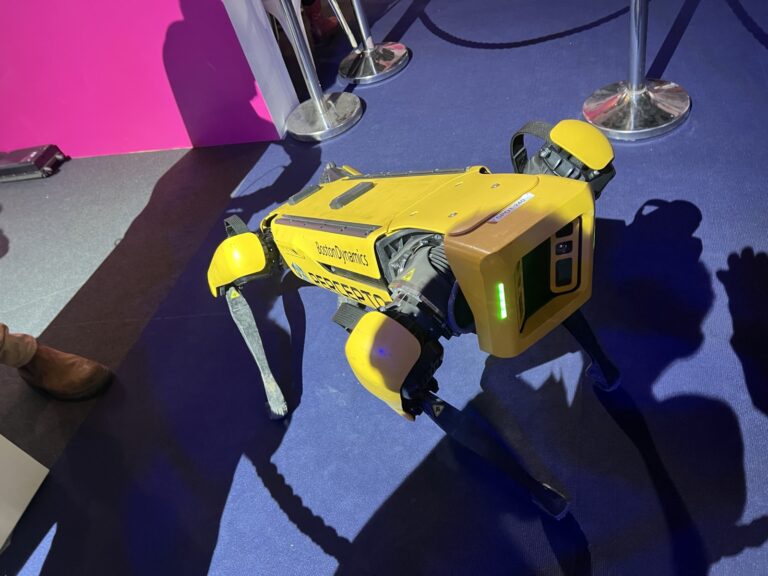
Florida Power and Light, a key Percepto client, asked if Percepto could help them reach parts of their plant that were inaccessible to a drone. A ground-based “dog” was just what FPL was looking for. Percepto added an extra payload of its cameras developed for its drones to turn Spot into a UAV’s best friend.
Deeyook – where’s my car?
As the conference finished, boy did I wish I had Deeyook in my car. The Israeli startup uses WiFi rather than GPS for both indoor and outdoor navigation. So, in my case, it could have told me exactly where in the parking lot my car was located.
Actually, the company doesn’t offer a consumer app yet – Deeyook’s focus is helping industrial facilities locate vehicles in the factory or outside in the yard. Deeyook has a partnership with one of the largest WiFi makers in the world and its tech will be embedded in that company’s chips, for wide distribution.




